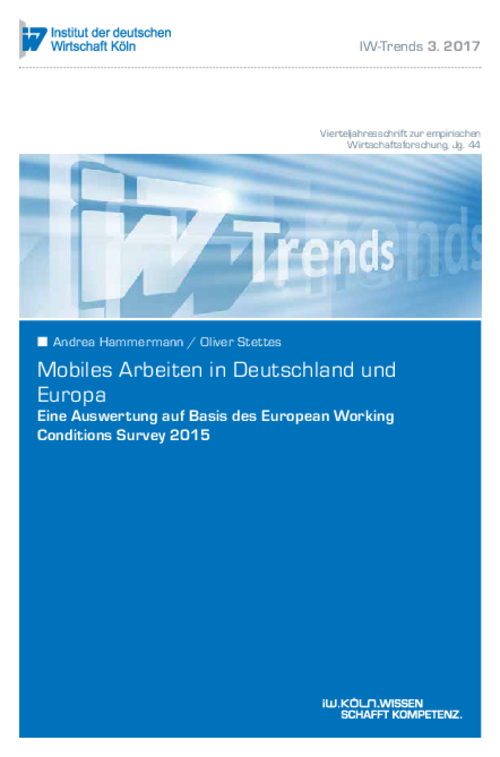More than half of Germany’s total workforce are at least occasionally deployed away from their employer’s premises.

An Evaluation Based on the 2015 European Working Conditions Survey: Mobile Working in Germany and Europe
IW-Trends

More than half of Germany’s total workforce are at least occasionally deployed away from their employer’s premises.
Contrary to the image usually invoked in public debate, mobile working rarely takes place in the home, in a café or at the pool side: it is mostly carried out at a customer's office or factory. A good proportion of the around 20 percent of employees who work away from their office several times a month and spend at least a quarter of their time working on a PC, laptop or smartphone are in management positions or jobs requiring a university degree. It is on these mobile computer workers that this study focuses since technological progress in the form of increasingly mobile information technology is likely to have rendered their tasks and work processes the most flexible. The working conditions of mobile computer workers do indeed differ from those of other employees. They tend to have more flexible working hours, be more self-organized and experience a more pronounced merging of work and leisure time. By contrast, their assessment of their working climate and job satisfaction appears to differ little from that of their office-based counterparts.

Andrea Hammermann / Oliver Stettes: Mobiles Arbeiten in Deutschland und Europa – Eine Auswertung auf Basis des European Working Conditions Survey 2015
IW-Trends

More on the topic

The 9th IW Survey of Further Training
In 2016 some 85 per cent of companies in Germany were active in continuing vocational training, using a broad mix of methods.
IW
Has the German Economy Reached its Limit?: Skilled Labour Shortages as a Brake on Growth
The German economy is performing significantly better than was expected in the first few months of this year. During the course of 2017, certain early fears – especially of a weakening of the global economy due to increasing protectionism – have proved ...
IW